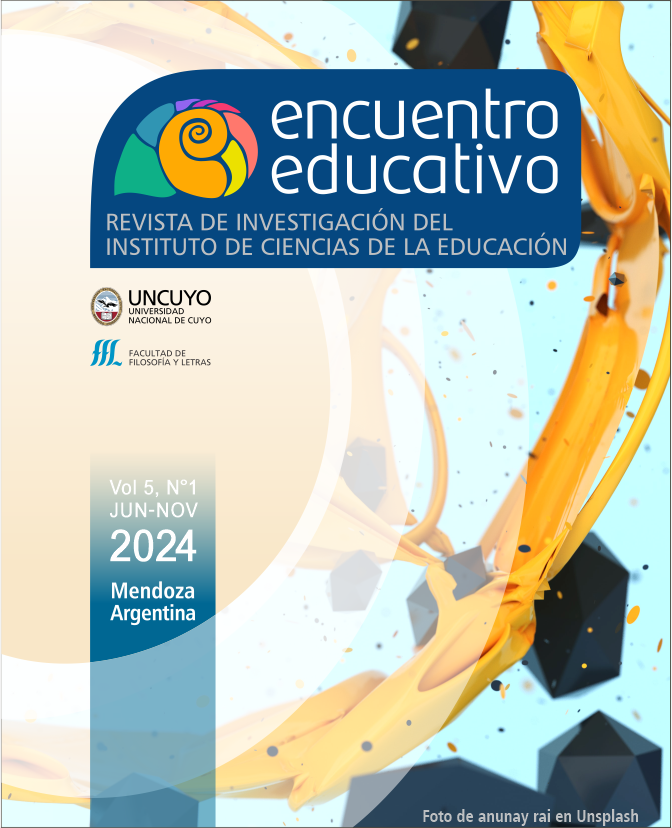Teaching digital competences
Creation and use of educational video in professional practicum in Primary Education
Keywords:
primary education, internship student, teacher skills, didactic material, educational videoAbstract
The issue of Digital Teaching Competences (DTC) related to the creation and use of educational video as a teaching resource is analyzed, in the context of the Professional Teaching Practice (PTD) (hybrid modality due to the restrictions caused by the pandemic of the Covid-19) of the Primary Education Career of the University of Costa Rica (UCR), Rodrigo Facio branch, held at Escuela Nueva Laboratorio Emma Gamboa (San Pedro de Montes de Oca, San José), during the II Cycle 2021. The study is limited to the concept of DTC, its performance levels and the dimensions for its development by the teaching staff, in addition, the stages of the construction process of the educational video are described within the framework of the development of the PTD. The research, of a qualitative nature, collected information through case studies, applying questionnaires to student practitioners and teachers collaborating in the process. The results allude to the digital and pedagogical teaching skills for the creation of videos, as well as the benefits and limitations of the process and the use of educational video as a didactic resource in virtuality. Among the main conclusions, it stands out that the practicing students faced challenges and began a process of familiarization with the technology that partially transitioned towards adaptation and integration; Despite the fact that the PTD was carried out in a hybrid modality, the construction dynamics and the use of the educational video as a didactic resource was strengthened by various aspects related to the dimensions of the DTC; As benefits, the pedagogical use and the quality of the resource are indicated, while as limitations, the (extensive) time stands out, the need to have equipment, tools and digital resources, especially for editing processes, in addition to the generation of educational strategies for PPD in hybrid mode.
References
Artavia-Medrano, A. y Gurdián-Fernández, A. (2020). Fundamentos de investigación cuantitativa en educación. Costa Rica: UNED.
Badilla-Saxe, E., Chacón-Ramírez, S. y Francis-Salazar, S. (2012). Una Universidad que aprende: Formación y Evaluación Docente en Red. Revista Electrónica Actualidades Investigativas en Educación, 12 (1), 1-27 http://www.redalyc.org/articulo.oa?id=44723363006
Barros-Bastida, C. y Barros-Morales, R. (2015). Los medios audiovisuales y su influencia en la educación desde alternativas de análisis. Revista Universidad y Sociedad [seriada en línea], 7 (3). pp. 26-31. http://rus.ucf.edu.cu/
Castro-Rivera, C. (abril, 2020). Blended Learning: Más que una tendencia de aprendizaje.
Castro, H. y Ríos, K. (junio, 2017). Aprovechar los dispositivos móviles en la clase: video educativo como estrategia colaborativa centrada en el alumno. Ponencia presentada en el XVII Congreso Internacional: Innovación y Tecnología en Educación a Distancia. UNED, San José Costa Rica. https://bit.ly/2VtfelG
Centro de Innovación Educativa Brasileña (CIEB). (2019). Competencias para educadores y multiplicadores para uso de TIDCs. Nota técnica n. 8. Sao Paulo. https://cieb.net.br/cieb-notas-tecnicas-8-competencias-de-professores-e-multiplicadores-para-uso-de-tics-na-educacao/
Cowad, Ch., Wedake, S., Anderson, A., Teltscher, S., Letamo, H. y Eun-Ju., K. (2018). Guía de usuario de competencias digitales de la Comisión de Unión Europea. Unión Internacional de Telecomunicaciones. https://n9.cl/protea
Díaz-Arce, D., y Loyola-Illescas, E. (2021). Competencias digitales en el contexto COVID 19: una mirada desde la educación. Revista Innova Educación, 3(1), 120-150. https://doi.org/10.35622/j.rie.2021.01.006
García-Martín, J. y García-Martín, S. (2021). Uso de herramientas digitales para la docencia en España durante la pandemia COVID-19. Revista Española De Educación Comparada, (38), 151–173. https://doi.org/10.5944/reec.38.2021.27816
García-Muñoz, T. (2003). El cuestionario como instrumento de investigación/evaluación. Etapas del proceso investigador: Instrumentación. Almendralejo.
http://www.etpcba.com.ar/documentos/sitios/evaluacion_intitucional/8_el_cuestionario.pdf
Hernández, R., Fernández, C., y Baptista, L. (2014). Metodología de la investigación. Sexta Edición. McGraw-Hill.
Hernández-Ramos, J. P., Martínez-Abad, F., y Sánchez-Prieto, J. C. (2021). El empleo de videotutoriales en la era post COVID19: valoración e influencia en la identidad docente del futuro profesional. Revista de Educación a Distancia (RED), 21(65). https://doi.org/10.6018/red.449321
López-González, W. (2013). El estudio de casos: una vertiente para la investigación educativa. Revista Educere, 17(56), 139-144. https://www.redalyc.org/articulo.oa?id=35630150004
Marquès-Graells, P. (2010) Los videos educativos: tipología, funciones y orientaciones para su uso. Departamento de Pedagogía Aplicada. Facultad de Educación. UAB.
http://www.peremarques.net/videoori.htm
Orellana-Guevara, C. y Castro-Araya, H. (2021). Materiales didácticos digitales: proceso de creación de un video animado como apoyo al quehacer docente. Revista Innovaciones Educativas, 23(34), 166-179. https://dx.doi.org/10.22458/ie.v23i34.3195
Pérez-Escoda, A., Iglesias-Rodríguez, A., Meléndez-Rodríguez, L. y Berrocal-Carvajal, V. (2020). Competencia digital docente para la reducción de la brecha digital: Estudio comparativo de España y Costa Rica Teacher’s Digital Competence for Reducing Digital Divide: Comparative Study Between Spain and Costa Rica. Tripodos, 46, 77–96.
http://www.tripodos.com/index.php/Facultat_Comunicacio_Blanquerna/article/view/790
Programa Estado Nación. (2021). Octavo Estado de la Educación. https://estadonacion.or.cr/wp-content/uploads/2021/09/Educacion_WEB.pdf
Rangel-Baca, A. (2015). Competencias docentes digitales: propuesta de un perfil. Pixel-Bit. Revista de Medios y Educación, (46), 235-248. http://dx.doi.org/10.12795/pixelbit.2015.i46.15
Real-Torres, C. (2019). Materiales Didácticos Digitales: un recurso innovador en la docencia del siglo XXI. 3C TIC. Cuadernos de desarrollo aplicados a las TIC, 8(2), 12-27.
http://dx.doi.org/10.17993/3ctic.2019.82.12-27
Sección de Educación Primaria. (2021). Programa de curso FD-1046 Práctica Docente en Educación Primaria (versión para estudiantes ubicados en la Escuela Nueva Laboratorio Emma Gamboa). Universidad de Costa Rica.
Tejada-Fernández, J. y Pozos-Pérez, K. (2018). Nuevos escenarios y competencias digitales docentes: hacia la profesionalización docente con TIC. Profesorado. Revista de currículum y formación del profesorado, 22 (1), 25-51. https://recyt.fecyt.es/index.php/profesorado/article/view/63620
Universidad Nacional Autónoma de Nicaragua (UNAN). (2011). Modelo Educativo de la UNAN, Managua. http://chamilo.cut.edu.mx:8080/chamilo/courses/DISENOCURRICULARMAESTRIA15DEJUNIO/document/7.-_Materiales_complementarios/Modelo_Educativo19_de_septiembre.pdf?cidReq=DISENOCURRICULARMAESTRIA15DEJUNIO&id_session=0&gidReq=0&origin=
UNESCO. (2021). Reforzar el aprendizaje y las capacidades digitales en los países más poblados del mundo para estimular la recuperación de la educación. https://es.unesco.org/news/reforzar-aprendizaje-y-capacidades-digitales-paises-mas-poblados-del-mundo-estimular
Zúñiga, C. M., Núñez, S. O., Matarrita M. S., y Arce, K. P. (2021). Competencias digitales de los docentes: Desafíos y ruta de acción para lograr un uso efectivo y sostenido de las TIC al servicio del mejoramiento educativo. Octavo Informe Estado de la Educación 2021. http://hdl.handle.net/20.500.12337/8168
Downloads
Published
How to Cite
Issue
Section
License
Copyright (c) 2024 Esteban Ibarra Vargas, Hazel Castro

This work is licensed under a Creative Commons Attribution-NonCommercial 4.0 International License.













